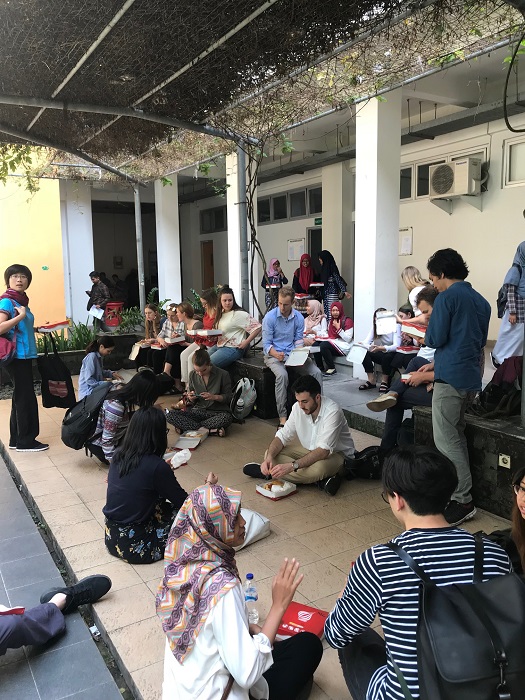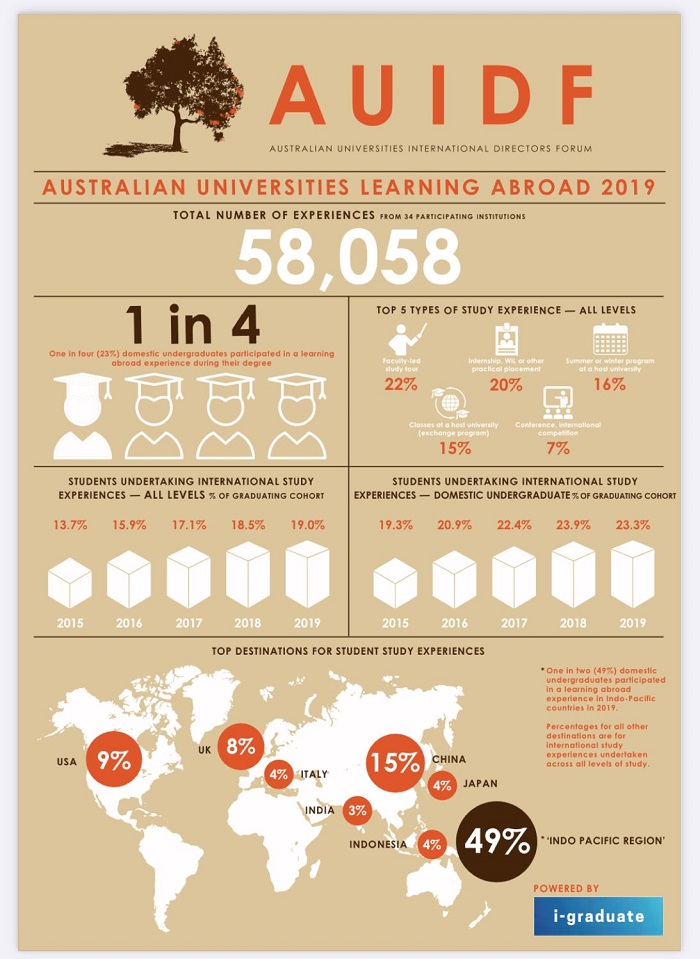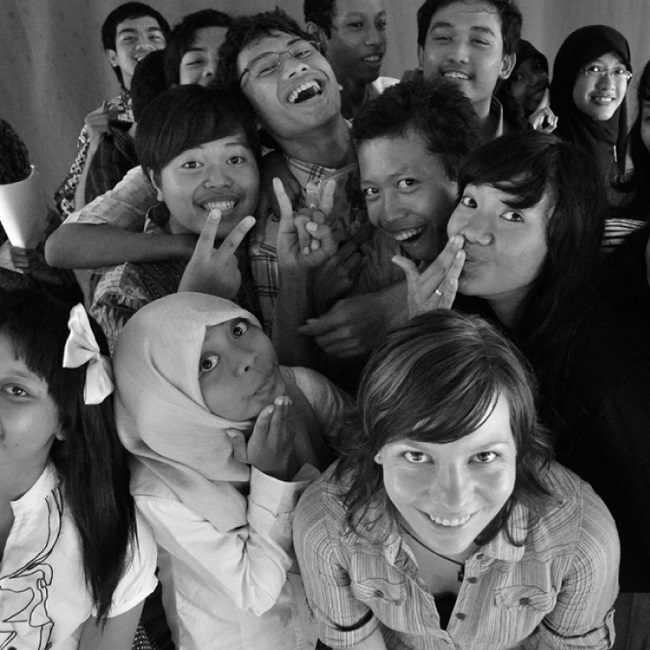Ly Tran
International education has been a phenomenon of growing popularity in both developed and developing countries over the past three decades. Despite a variety of focal points, orientations and uneven impacts, international education is generally regarded as a powerful vehicle for transforming the home and host communities educationally, socially, culturally and economically. International education has also been adopted as a strategic tool for fostering and reinforcing people-to-people and country-to-country linkages. In Australia, while inbound student mobility is often seen to be geared towards the commercialisation of education, outbound student mobility is predominantly motivated to support students’ capacity building, transnational institutional connections and public diplomacy.
Over the past two decades, Australia has introduced multiple policy documents explicitly articulating the role of outbound student mobility in Australia’s social, cultural, economic and public diplomacy development, demonstrating a policy commitment to supporting students’ learning abroad. Policy documents such as the Bradley Review of Higher Education, the Global Alumni Strategy 2016-2020, the Australia 2020 Summit Report, the Foreign Policy White Paper 2017, the National Strategy for International Education 2025 and the New Colombo Plan, emphasise the critical need for promoting learning abroad. Supported by explicit policy frameworks and substantial funding, Australia has become a country with some of the highest participation of students’ learning abroad, with one in four students undertaking learning abroad as part of their degrees. Students from 34 Australian universities undertook 58,058 international experiences altogether in 2019. This is a more than threefold increase over the ten-year period 2009-2019, up from 15,058 in 2009.
Over the past five years, learning abroad in the Indo-Pacific region has been the main growth driver, accounting for almost half of Australia’s outbound mobility. The New Colombo Plan (NCP), launched in 2014, is a key force expanding learning abroad destinations for Australian students to the Indo-Pacific. It is a reverse of Australia’s student mobility, promoted in the original Colombo Plan which was initiated in 1951. The old Colombo Plan supported around 40,000 students and scholars from Asian countries to study in the Commonwealth to enhance their skills and knowledge.
Building on the legacy of the Colombo Plan, but positioned as a reciprocal form of student mobility, the NCP demonstrates the Australian government’s commitment to lifting the Indo-Pacific knowledge among Australia’s young generation by providing them with the opportunity to undertake study and/or internships in the region. Since 2014, Indonesia has been among the top five destinations for Australian students undertaking an NCP study experience, with more than 10,000 Australian students receiving NCP awards to study and intern across the archipelago.

The NCP has helped to raise awareness of the opportunity to learn in the region among Australian students, many of whom would otherwise never think about tertiary study in the Indo-Pacific. The different modes of learning abroad, such as short-term mobility, longer-term study and exchange, internships, mentorships and language training within the NCP program significantly enhance the access to learning abroad among Australian students. The initiative has supported more than 70,000 students through its scholarships and mobility grants since 2014. One of the distinctive features of the NCP is the provision of the opportunity for students to learn in cohorts and in a collective environment with both their Australian peers and their host communities. Learning abroad via the NCP has the potential not only to impact on individual students’ development but also to diversify and enrich Australian universities’ partnerships with universities and organisations in the Indo-Pacific that can lead to valuable social, research, teaching and learning collaborations.
COVID-19 has caused the greatest disruption to international education and learning abroad. The pandemic has necessitated the shift of focus of international education away from internationalisation abroad to internationalisation at home, from physical to virtual mobility and from face-to-face on campus learning to online and blended learning.

The ongoing pandemic has opened up possibilities to rethink learning abroad arrangements and transform disruption and precarity into flexible, meaningful and inclusive learning abroad. In a context where cross-border mobility is significantly constrained, virtual learning abroad forms such as virtual internships, online mobility programs and Collaborative Online International Learning (COIL) techniques have been introduced to support Australian students’ learning, engagement, experience and development of knowledge about other countries, which are critical to their life, employability and future. While the ongoing COVID-19 situation has caused disruption and challenges, it has brought about the possibility for a re-design of learning abroad programs as the reciprocal side of international education in Australia. The current context suggests the need to re-think learning abroad models, funding arrangements, and partnerships with host organisations. It has given rise to some emergent questions:
- How do we optimise students’ experience and ensure quality in different forms of virtual learning abroad?
- What are the key constructs of internationalisation in virtual learning abroad?
- How do we internationalise the student experience and teaching and learning in virtual mobility programs?
- What are some innovative and alternative partnerships models that facilitate virtual learning abroad?
- How do we effectively engage with host organisations and communities in co-designing virtual learning abroad programs that meet their needs and values and at the same time optimise the learning for Australian students?
- How do Australian students get to know our host communities and countries and maintain connections with them in virtual learning abroad mode?
- How do we support students’ learning of foreign languages in a virtual learning abroad environment?
- To what extent has learning abroad become more inclusive and how do we widen educational access, especially for non-mobile students and those from more disadvantaged backgrounds in an increasingly virtual world?
- How do we help students articulate the experiences, skills and knowledge gained through virtual learning abroad into employability language?
- How do we reframe the principles and values of international education through virtual mobility and internships?
In considering responses to these questions, we should acknowledge the social and economic values of both inbound and outbound international education, the importance of encouraging awareness of Indo-Pacific issues among young Australians and also building capacity in virtual learning abroad, especially in the Indonesia/Pacific region.
Ly Tran (ly.tran@deakin.edu.au) is a Professor in the School of Education, Deakin University and an Australian Research Council (ARC) Future Fellow whose research focuses on international education, graduate employability, and the New Colombo Plan.
